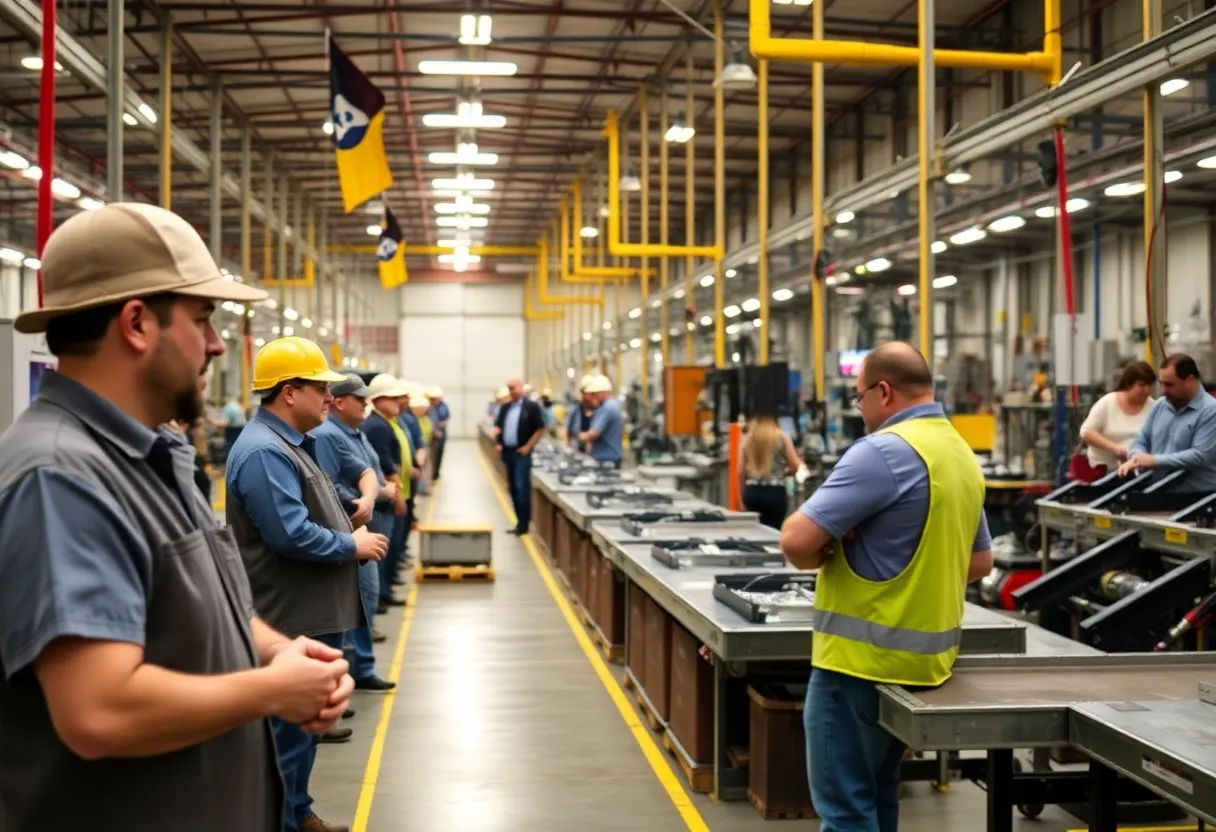News Summary
Manufacturers in South Carolina are grappling with uncertainty as potential tariffs on imports loom large. While some see opportunities, others fear the impacts on operations and costs. Companies like KION North America are preparing for changes, focusing on domestic production strategies. Experts warn that rising tariffs could harm the U.S. economy and challenge supply chains. The industry calls for a clear economic strategy to navigate these tumultuous waters and adapt to evolving market dynamics and labor shortages.
South Carolina Manufacturers Face Uncertainty Amid Proposed Tariffs
In South Carolina, manufacturers are navigating a rocky sea of uncertainty as former President Donald Trump and Ohio Senate candidate J.D. Vance raise the prospect of tariffs on imports from several key countries. This potential policy shake-up has left businesses on edge, wondering how these changes could impact their operations, supply chains, and overall market stability.
It turns out that while some manufacturers may see a glimmer of opportunity from tariffs, others could find themselves in a bit of a bind. Executives in the manufacturing sector are currently stuck in a waiting game, crunching numbers and analyzing scenarios as they try to figure out how impending tariffs might hit their bottom lines.
What Does the Future Hold?
The implications of these tariffs are broad, affecting everything from pricing to supply chain logistics. In a recent assessment, it was noted that Canadian, Mexican, and Chinese goods currently make up a substantial portion of imports to the U.S. Trump’s proposed measures, including a hefty 25% tariff on products from Canada and Mexico and an additional 10% tariff on goods from China, have raised eyebrows and sparked concern among industry insiders.
Take KION North America, for example. Based in the heart of South Carolina, the company is getting ready for whatever might come next. They are in scenario-building mode, looking at various “what if” situations to prepare for possible increased tariffs on imported goods. The CEO has expressed a strong desire for post-election stability and direction when it comes to market dynamics.
The Economic Ripple Effect
Experts warn that while tariffs may seem like a good idea in theory, they could actually lead to negative outcomes for the U.S. economy. Rising tariffs can increase costs for raw materials, disrupting not just the sourcing of products but also the distribution channels. There’s also the concern that if the U.S. implements high tariffs, other countries might retaliate, leading to a potential decline in demand for American exports.
Think about it: the economy is all about balance. If one side tilts too far, it can lead to repercussions that could trickle down to the average consumer.
Challenges and New Strategies
Companies are not only focusing on potential tariffs but also on adapting to a more localized operational model. KION, for instance, is looking to minimize reliance on international supply chains, which can often lead to complications during unforeseen events – we all remember how the pandemic shook things up! With consumer demand swirling, executives are feeling the pressure to keep prices steady despite fluctuating freight costs and rising inflation.
Even in the face of these challenges, some manufacturers see a silver lining. Unionwear, a company dedicated to entirely U.S.-made products, is experiencing a demand surge as American businesses contemplate shifting towards domestic production to hedge against tariffs. This move not only supports local industry but also meets the growing consumer preference for homegrown products.
Looking Ahead
As Baby Boomers exit the workforce, companies are also faced with the challenge of filling job gaps which could further complicate the manufacturing landscape. Strategies will need to evolve not just in response to potential tariffs but also to changing labor dynamics. With upcoming events like the FIFA Club World Cup and 250th anniversary celebrations, there’s hope that these moments could inject some positive momentum into the manufacturing sector, creating new opportunities for growth.
As the dust settles on proposed tariff policies, the sentiment among industry leaders remains one of cautious concern. They are calling for a clear, well-defined economic strategy moving forward to help manufacturers in South Carolina and beyond navigate these tumultuous waters. The stakes are high, and as businesses strategize their next moves, it’s clear that the manufacturing landscape could look quite different in the near future.
Deeper Dive: News & Info About This Topic
- Charleston Business: What a Trump Presidency Could Mean for South Carolina Manufacturing
- New York Times: Trump Tariffs and Their Economic Impact
- Fortune: Impact of Trump’s Tariffs on Automotive Industry
- Automotive Dive: Polestar’s Production in South Carolina Amid US Tariffs
- PV Magazine: Trump and Solar Trade Tariffs
- Google Search: Impact of tariffs on manufacturing







